The Defence Committee’s recent session on the Strategic Defence Review provided insights into what the team are looking at.
Led by Lord Robertson of Port Ellen and General Sir Richard Barrons, the review focuses on addressing contemporary threats and structuring the military with the ‘demands of modern warfare’.
A key theme of the review is transformation. Rather than addressing legacy gaps, the SDR seeks to reshape the Armed Forces for the digital age.
In a meeting of the Defence Committee earlier this week, General Barrons explained, “We are not about filling in holes that the Armed Forces may have had since the end of the Cold War. That would be the wrong thing to do.†He emphasised that the review is examining every aspect of defence, aiming to maximise efficiency and effectiveness.
Innovation is a central focus, particularly in areas like artificial intelligence, autonomous systems, and cyber capabilities. General Barrons described this as a shift towards a “crewed, uncrewed and autonomous mix, with autonomous capability predominating as time passes.†He highlighted the importance of foundational data systems, including cloud computing and AI, to support future military operations.
The review also prioritises NATO commitments while maintaining the UK’s broader global responsibilities. Lord Robertson explained, “‘NATO First’ does not mean ‘NATO alone.’ We are perfectly conscious of what NATO needs and the alliance needs for the future, and we fit into that.†This dual focus reflects the UK’s role in collective defence and its broader strategic interests, such as the Indo-Pacific region and the AUKUS partnership.
The war in Ukraine has influenced the review, serving as a case study in modern warfare. General Barrons noted, “It would be completely wrong to think that the lessons from Ukraine…are not being fully absorbed by the UK Armed Forces.†He added that these lessons are shaping the review’s recommendations for both operational and industrial resilience.
Addressing skills shortages and strengthening the defence industry are also priorities. General Barrons acknowledged, “There is a skills crisis. It is not unique to defence.†He emphasised the need for sovereign supply chains and industrial resilience to ensure the UK can sustain its defence capabilities during crises.
The SDR’s focus on transformation, innovation, and resilience reflects an effort to future-proof UK Defence. Lord Robertson stated, “We are perfectly conscious now of what is desired and wanted of this country…This review will chart a path well beyond the immediate period.â€


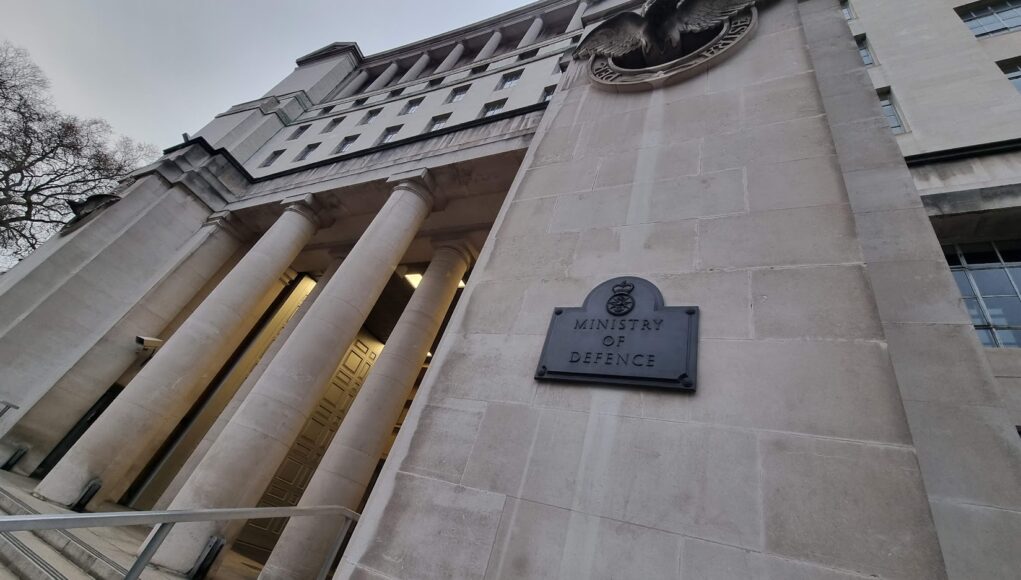

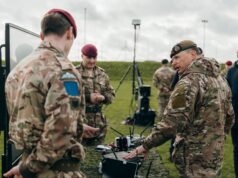
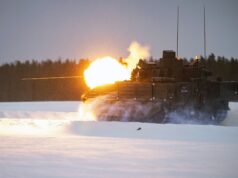
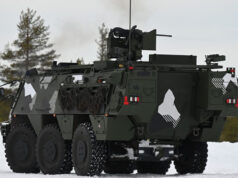

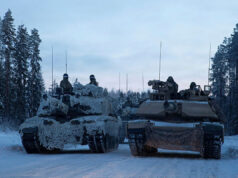

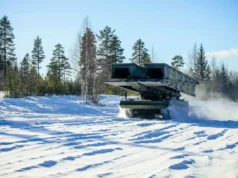
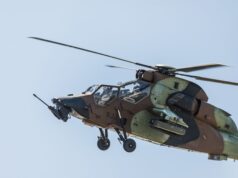


Amazing my gast has been flabbered
“We are not about filling in holes that the Armed Forces may have had since the end of the Cold War. That would be the wrong thing to do.â€
The very first thing you do is fill in the holes… that must be the point.. identify where you are failing and put in place something to prevent that.
Well quite….
The prob they have is, as we all know here, force structure has dropped so far below critical mass that a spending lift to 2.5% simply won’t be adequate.
It needs to be a minimum of 3%, ring fenced and locked down for decades to start turning things around.
It would appear they aren’t going to bother, and try pushing unmanned tech as hard as they can…
Yes. Unmanned tech will have relatively low annual running costs. I could see the army being forced to trade in a thousand or more soldiers to get some tens of thousands of drones.
The British army lacks the equipment and manpower to deploy a single division. The navy lacks the operational warships and support ships to deploy a carrier group, the airforce currently lacks any airborne early warning or ground based air defence.
I’d really concentrate on fixing those things first instead of busying your selves looking for reasons not to fix them.
Ahh, but this means they get their excuses in early, and by justifying autonomous and AI over all else, cut more conventional kit and people.
Not once anywhere has any military official admitted we are too small. I only recall Healey talking of that when in opposition.
Yep, spot on mate, ‘the army is too small’ they shouted from the opposition benches….
Now it’s silence….
It’s the same as when senior forces staff say nothing while they’re in post but have plenty to say once they leave/retire, they only talk up and highlight the realities when they don’t have the ability to push change and have nothing to lose.
hI Cognitio. I am sure that by the time-honoured process of robbing Peter to pay Paul that a full warfighting division of soldiers could be fielded. How big is 3 Div? 15,000? 20,000? Well the army has got 73,000 soldiers so it could do it.
Equipment is another story, Many CR2s will be being fed to Industry for conversion to CR3 but there must be a fair number that are still in unit hands. 155mm tube artillery is the biggest issue – very few of them. But I have no doubt that 3 Div would deploy yet being short of kit if the war started. We are famous for deploying under-strength and/or with unsuitable kit and muddling through.
Is the stuff they are talking about even available? It’s ok to say AI this and new weapons but if no one is making them and the research hasn’t been done to see if it’s possible it’s a non starter.
They could put in all we need is a Death Star but that doesn’t mean it’s possible just now.
As for the skills shortage try making things idiot proof. Then the skill level is lower.
It seems to be another of those AI will solve everything solutions
OT….12 of the RAF Hercs that were so knackered they’re falling to bits and that the 22 A400s can easily do their role, are reportedly being bought by Turkey.
Unbelievable.
Indeed they are cutting real proven mature capabilities to fund pie in the sky dreams..the thing is when you are flush with money you can fund the pie in the sky stuff, when your living hand to mouth you put food on the table and pay for the rent.
In the case of the armed forces the “food on the table and rent†equates to the core activity that prevents a major war, via Deterrence, so the entire purpose of the review should be first and foremost asking the question are the Uk armed forces able to deter a major conflict and for that you have to be able to show the 3 Cs capability ( first you must have a capability that deters), credibility ( you must show the political will to use your capability), communication ( your enemy must know you have the capability what it can and will do to them so they can balance risk vis gain and decide not to go to war).
So for the UK armed forces the key deterrents are ( in order of important for each part of the armed forces, in my view )
Army deterrents
1) the ability to deploy an armoured division that is able to fight and destroy a peer division in Europe
2) ability to deploy an airborne or light brigade anywhere in the world ( in conjunction with the airforce and navy)
3) the ability to deploy special forces anywhere in the world ( in conjunction with the navy and airforce)
airforce
1) the ability to destroy any attacking force ( air or sea) launching an attack on the UK ( in conjunction with the RN)
2) the ability to penetrate an enemies airspace and destroy any key infrastructure in Europe
3) the ability to ( in conjunction with the navy) penetrate the airspace and hold at risk key infrastructure of any nation on earth
Navy
1) the ability to functionally destroy any nation with a nuclear strike.
2) the ability to destroy any naval or air forces directly attacking the Uk or key sovereignty territories ( in conjunction with the RAF)
3) the ability to hold at risk any nations core infrastructure with sea and air power ( in conjunction with the RAF) via a carrier battle group and the ability to undertake naval strike, via surface or sub surface combatants across the globe.
4) the ability to deny a sea lane or area to an enemy ( via ssn, surface combatants or CBG).
Basically the first thing the review needs to do is make sure present capabilities are up to these core deterrent roles, that they are resourced to the point they are credible and communicated ( they are being actively thrust in the faces of our enemies via exercises and deployments and the government is clear they are steel eyed and have their finger on the go button..also that the communication makes sure the British people are ready for the button to be pressed..democracies only really win if the will of the population is behind the fight).
Not a bad list. If we started from scratch, ignoring what we currently have, we could define simply what we expect our forces to be able to do. In addition, we should be very clear about what they will not be expected to do. That would not only make the costs easier to explain to an uninterested public but also focus on what we must have rather than like to have. Something like-
*.Deterrence of a direct attack on the UK by nuclear or conventional weapons
* Defence of the UK including offshore assets against such threats
* Defence of overseas territories
* Support for civil authorities
* Contribution, using the assets necessary for the above, to NATO collective defence.
Immediately, such a list reveals areas of weakness- lack of long range conventional missiles, no GBAD, too few combat aircraft too few ASW assets, lack of reserve forces.
But unless serious extra money is a real possibility, the review is rather pointless
Hi Jonathan,
Nice analysis.
I would add to your list for the RN and RAF the protection of our Sea Line of Communication.
I do bang on about this point and I must say I am somewhat mystified why few if anyone else on here talks about defending merchant shipping. We have been doing it in the Red Sea, so we are bound to need to do it in one way or another in the Atlantic. Assuming NATO holds together, re-enforcement and resupply from North America will be necessary. OK much of the first wave will be flown in and marry up with prepositioned equipment but follow on sustainment will be required should any future conflict follow the pattern of the war in Ukraine – and frankly I see no reason why is shouldn’t.
As an island nation we are uniquely vulnerable to blockade as two world wars amply demonstrated.
Cheers CR
hI Cognitio. I am sure that by the time-honoured process of robbing Peter to pay Paul that a full warfighting division of soldiers could be fielded. How big is 3 Div? 15,000? 20,000? Well the army has got 73,000 soldiers so it could do it.
Equipment is another story, Many CR2s will be being fed to Industry for conversion to CR3 but there must be a fair number that are still in unit hands. 155mm tube artillery is the biggest issue – very few of them. But I have no doubt that 3 Div would deploy yet being short of kit if the war started. We are famous for deploying under-strength and/or with unsuitable kit and muddling through.
Hi Jonathan, some good thinking there, but I would rather we worked on the basis that we would be outnumbered and that our warfighting division would have to destroy or at least neutralise 2 or 3 enemy divisions.
Fair point, the army should be aiming for significant overmatch. Which mean more precision fires than they have got now.
Bla bla bla, just a ministry of cuts, they,re only interested to find excuses to reduce the armed forces more and more.
The more we hear the more it sounds like it’s only going to get worse considering the excuses and redirection are already coming out and that this is only about the money. It’s hard to see the point of this SDR if it isn’t going to explore the countries ability to actually meet its commitments and how to fix the capability gaps to do so today, not in the future at the cost of today.
The reality is the technology they talk about isn’t there or is in the early stages of development and potentially decades away from being used, then they end up being overly expensive and not always as effective as expected. All the talk of technology and the digital age is just another way to kick the can down the road and delay real decisions, easier to talk of technology and put smaller amounts of money into a few research projects than fix the issues across the forces and buy actual kit whilst still conning the public into thinking that things are moving forward and the forces aren’t being neglected.
You can’t only focus on future technologies when you can’t even equip your forces with the basics of current generation of equipment/technology.
Its all just pointless “noise” without more money and manpower. Given the apparent demand from the Treasury that SDR is cost neutral, it looks set to be more cuts to conventional forces in order to spend a bit extra on supposed game changers such as AI, drones, UCAV’s, space, cyberwarfare, hypersonics …
I’ve just been reading about the end of the Roman Empire. It concludes that the main reason that it fell was that the political elite just couldn’t believe that that could happen, even when the barbarians were literally at the gates of Rome. They simply refused to save the desperate and collapsing Roman Army by giving it the funds and recruits it desperately needed, and which they easily have provided from their immense personal fortunes and vast country estates.
Similarly, modern British politicians (regardless of party) simply don’t believe deep down that the UK is really militarily threatened or that the “West” could fall, hence in practice its still business as usual reduction’s where defence spending is concerned. Even if some concerned statements are made in Parliament, the underlying assumption is that the problems in Ukraine, Gaza, Taiwan, Iran, Korea, … are all far far away, will be primarily handled by the USA with Europe cheering them on half-heartedly from the sidelines, and will eventually be resolved without any inconvenience to ourselves.
Richard, when did the Treasury insist that SDR be cost neutral? Never heard that before. That would mean that none of the extra money in the elevated 2.5% total will be spent.
I think this revue just highlights the problem with having politically vetted Generals/Admirals/Air Chef Marshals they are only selected to head up this type of revenue because they will not ruffle the fathers of the politicians who asked for the revue. I think if you asked a sub mariner who has just finnished a 6 month deployment you would get a diffrent answer.
Those senior officers are not running the Review. It is being run by an external team headed up by Lord Robertson.
Sounds like getting the “excuses in early to meâ€. Lots of talking heads but not a lot of substance. The problem is we are short of everything Personnel, Planes, Ships Artillery etc. Plus a very stretched industrial support base to Sustain and Maintain the current level of equipment and readiness. I have no doubt that AI will shape the future conflict environment and should be invested in strongly. However with No Kit & No men its impact will be limited. It will be a while before AI is jumping into a trench with a fixed bayonet!! We need Kit & Men and we need to move fast to show our Allies & Adversaries that we are willing to step forward to Deter & Defend. Government STOP Talking GET Doing!!!
Personally I think the single core role of any armed forces is deterrence and for that to work you need the capability in place, it needs to be be credible and the damage it will cause needs to be communicated to the enemy…
Future capabilities do not deter only what you have now and have show you are willing and able to deploy and use now deter..we are living in a fantasy land of future capabilities when our enemies are planning their wars now. Infact the fantasy of future capabilities is an anti deterrent if linked with weakness in the present as your enemies will look at you now and a future in which you are stronger..any balance of the risk will therefore be on the side of war now.
Our ( and the wider west) defence posture has slid into a jam tomorrow mentally which is and has made the world a more deadly place.
The simple truth is that to Putin and Xi all the programmes we get excited about such as the T31, T26, T83, challenger 3, 6 generation fighter, AUKUS submarine, future ballistic missile defence mean very little as they are considering wars within the next 4 years not next decade. So the very first thing the defence review need to do is ensure all our core deterrents ( good airforce that can defend and strike, army that can deploy a heavy division and light/special forces anywhere, a navy that can defend and strike anywhere, a country ending nuclear deterrence) have the capability and this is credible and communicated..after that to we then look at jam tomorrow.
British politicians have been willing the defence mission but not the means since 1964. In the early 1960s Britain could and did deter a Gulf war from its bases in Bahrain and U.A.E. Since the 1966 ‘East of Suez’ withdrawal, the Middle East has been in chaos.
The withdrawal of HMS Endurance led to the Falklands conflict.
The disbandment of Alanbrooke and Montgomery’s British Army of the Rhine has collapsed Europe’s conventional deterrent, leading directly to today’s war in Europe; yet another one.
If General Sir Richard Barrons has, once again, been given a mission without the means, cannot restore a British Army Corps in being, we can look forward with trepidation to the certain collapse of NATO in due course and a new iron curtain from Odessa to Kaliningrad, just for starters.
With a new European superpower camped on NATO’s borders and the U.S. gone from Europe, the domestic and foreign policies of Western European nations will be constrained as never before; the ‘free world’ an historical anomaly.
Russia only respects numbers. Armoured divisions deter. Maybe a war can be won by technology, but can a war be so deterred? The only real victory is deterrence. None of this is new, or complicated.
‘As a bare minimum, it is the role of the Atlantic army to replace the strategic nuclear deterrent as the instrument with which the attack option is foreclosed to (Russia). But that is a bare minimum. In a modern strategy the Atlantic army must provide for the West a sense of security to a degree that will encourage it to act and react in respect to global events with confidence. That forecloses to ‘Russia’ the options of intimidation, blackmail, and political leverage.’
LAND FORCES IN MODERN STRATEGY by LIEUTENANT GENERAL DE WITT C. SMITH, JR. US ARMY 1977
We should know what to do. We have done it before. It works. But the SDR looks set fair to be deja vu all over again and, if it is, dire consequences lie immediately downstream.
“Russia only respects numbers. Armoured divisions deter. Maybe a war can be won by technology, but can a war be so deterred? The only real victory is deterrence.â€
That statement has a couple of the most fundamental statement of them all,†the only real victory is deterrence†, the war you don’t need to fight is the war you have won. As well as “Russia only respects numbers, armoured divisions deterâ€..yes because any deterrence has to be observable and be communicated..esoteric assets and defensive capabilities may be vital to winning a win a war, but it’s the display of pure brutal power and your willingness to utterly destroy your enemies counties ability to fight that prevents wars.
Yes, indeed. There is a correlation between Britain’s establishment of its nuclear deterrent and the gradual winding down of our conventional deterrent. Various retired senior officers consequently drew the conclusion that the nuclear deterrent could be done away with in order to fund larger conventional forces. As far as I am aware, no senior officers have taken that view since the annexation of Crimea in 2014. But, as Lt Gen DeWitt Smith pointed out in 1977, a nuclear deterrent requires a conventional deterrent as back up. That is particularly evident now that, this year, for the first time, a nuclear power has been invaded by its neighbour, Ukrainian forces still established near Kursk.
So the Strategic Defence Review, without significant resources available, will be yet another complete waste of time. The war in Ukraine will get even worse; Ukraine’s army may very well collapse. If that happens, Putin will, in due course, move into Moldova, seize the Suwalki corridor and annex the Baltic States; ans, as currently constituted, even with the best advanced digital technologies, remote systems, without mass, we will be powerless.
‘Ou est la masse de manoeuvre?’ ‘Aucune!’
Yes, indeed. There is a correlation between Britain’s establishment of its nuclear deterrent and the gradual winding down of our conventional deterrent. Various retired senior officers consequently drew the conclusion that the nuclear deterrent could be done away with in order to fund larger conventional forces. As far as I am aware, no senior officers have taken that view since the annexation of Crimea in 2014. But, as Lt Gen DeWitt Smith pointed out in 1977, a nuclear deterrent requires a conventional deterrent as back up. That is particularly evident now that, this year, for the first time, a nuclear power has been invaded by its neighbour, Ukrainian forces still established near Kursk.
So the Strategic Defence Review, without significant resources available, will be yet another complete waste of time. The war in Ukraine will get even worse; Ukraine’s army may very well collapse. If that happens, Putin will, in due course, move into Moldova, seize the Suwalki corridor and annex the Baltic States; and, as currently constituted, even with the best advanced digital technologies, remote systems, without mass, we will be powerless.
‘Ou est la masse de manoeuvre?’ ‘Aucune!’
“new European superpower camped on NATO’s borders” If this is Russia, you are having a laugh
Russia does not think short term. They consider much longer time frames. They have been trying to subsume Ukraine since the mid nineteenth century. Even if Putin is stopped this time, Russia will go again in due course. Why? Demographic imperialism. With Ukraine, Belarus, Moldova and the Baltic States, the Russian Union State will, once again, comprise a nation of two hundred and fifty million souls blessed with ample energy and mineral resources. Underestimate their intent at your peril.
The population of Russia is dropping over time. I also find in the unlike event, that if Russia was to get Ukraine let alone the Baltic states to submit to them they would be blessed with ample energy about it
Who says we will only be fighting Russia? The West is facing a serious military challenge from an autocratic bloc led by China. The US military shorthand iis CRINKs – China, Russia, Iran, North Korea.
As the.Ukraine war shows, all 3 are assisting Russia, including with.equipment, munitions, NK troops, Chinese finance.and technoligy. China and Nth Korea.have massive land forces and could fight on several fronts simultaneously. As all are united in seeking to supplant the USA and Europe, and are gearing up to do so by force, we cannot afford to ignore the threat.and base our war plans on just containing Russia.
‘As a bare minimum, it is the role of the Atlantic army to replace the strategic nuclear deterrent as the instrument with which the attack option is foreclosed to (Russia). But that is a bare minimum. In a modern strategy the Atlantic army must provide for the West a sense of security to a degree that will encourage it to act and react in respect to global events with confidence…..’
Lt Gen DeWitt Smith
His open source lecture, LAND FORCES IN MODERN STRATEGY, is not long, worth a read’
I see a new version of the 1957 defence review coming, lots of existing capability being scrapped to pay for new technology that never arrives.
AI (UK based), robots and fusion energy research should be the government’s top priority to develop and keep it local to the UK. I know the current government has thrown in a few quid in this direction but it is just not enough. Imagine if we purchased & became reliant on Elon Musk’s (or anyone else) tech and one day he just decided to switch it all off remotely, the UK would be up the swanny without a paddle. This tech is evolving so, so fast and the UK government seems to be stuck in the mud over these issues.